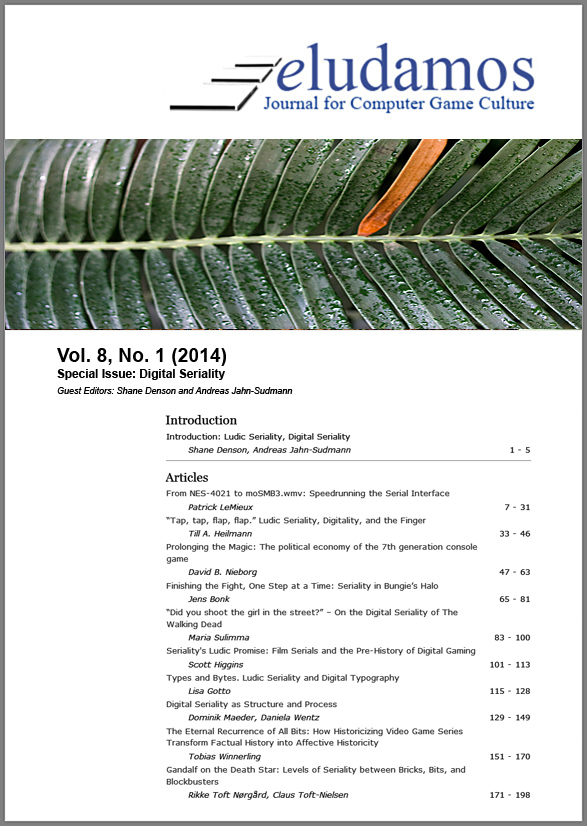The Eternal Recurrence of All Bits
How Historicizing Video Game Series Transform Factual History into Affective Historicity
DOI:
https://doi.org/10.7557/23.6432Keywords:
Video Games, History, Seriality, Nietzsche, Deleuze/Guattari, Eternal ReturnAbstract
Video games that feature historical content – what I term ‘historicizing’ video games – often come in series. Civilization (I – V), Age of Empires (I – IV), Anno (5 pts.), Monkey Island (5 pts.), Total War (7 pts.), Assassin’s Creed (I – IV), to name but a few, are heavily serialized in that they all, save for their respective first incarnations, point continuously to the other titles in their series’, be it on a structural level or with regard to content. That they do so has many reasons that are totally unconnected with everything they represent, economic ones foremost, but also the need to meet genre- and audience-imposed expectations as well as technical limitations. This aside, given that players who liked one in a bundle are likely to play the rest also, the mere factuality of the series carries implications for the content worth mentioning. First, semiotically such a set of game titles is aptly described in Deleuze/Guattari-terms as an instance of the paranoid-despotic regime of signs, where signs signify nothing but other signs, bound up in an endless virtual cycle. And second, philosophically this may be taken as a prime instance of the Nietzschean ‘eternal recurrence of all things’. Both readings converge in the implication that as these games’ series seemingly stage ‘history’, they unlink history and temporality, installing a chron-alogical framing. Thus, they effectively replave in themselves any factual history as the concept is traditionally understood in Western discourse since the middle of the 19th century with affective historicity. In this, they may reflect (as other media featuring historical content as literature, film, TV, radio, comics, re-enactment, ‘living history’, LARP etc.) popular demands not satisfied by academia, or foreshadow a conceptual transition as part of the digital revolution. Time will tell – if this will still be possible, then.
Publication Facts
Reviewer profiles N/A
Author statements
Indexed in
-
—
- Academic society
- N/A
- Publisher
- Septentrio Academic Publishing








